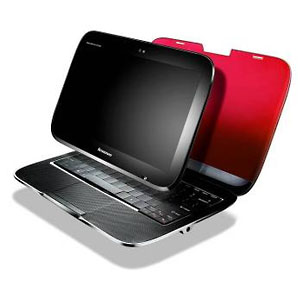33% Of Americans Want Keyboard With Their Tablet; Should Android Makers Step Up?
Two statistics from Zogby International's recent survey of American consumers and tablets jumped out at me.
The first: more than half (56%) of Americans buying a tablet would prefer a device at a lower cost (preferably under $300) even if it means getting a 2-year data contract from an operator, versus paying a higher upfront price for a tablet with no contract.
I think there are two ways to interpret that:
1) we Americans plan to use the tablet on the go and thus see a lot of value in a 3G or 4G data plan;
2) we Americans are so bad at math that we don't realize that the Total Cost of Ownership (TCO) for a $300 tablet with even a cheap data plan (say $20 a month) would cost more than most tablets within 1-2 years ($540 in 1 year, $780 after two years, vs. $499 for a 16 GB Wi-Fi iPad).
I'll give us a little benefit of the doubt and say it's a mix of both :)
The second stat from the survey (full disclosure: sponsored by employer, Sybase) that jumped out was this: 33% of Americans want a physical keyboard with their tablet.
What does it all mean? Here are four interpretations:
1) Mainstream Americans haven't been exposed to latest-generation multi-touch interfaces (iPhone, iPad, Android, HP TouchSmart PCs, even Microsoft's Surface computer), so they cling to a keyboard like a security blanket.
2) Mainstream Americans have tried out touchscreen-only phones like the iPhone and dual keyboard/touch models like the Droid X, Palm Pre, BlackBerry Torch, and they still prefer the latter hybrid.
3) Americans sometimes tell surveyors one thing but do another. I say this b/c a tablet w/keyboard sounds suspiciously like a convertible laptop/tablet. Those have existed in the Windows market for almost a decade but have never taken off.
4) Americans want to do real work on their tablets. That's supported by data from investment bank Goldman Sachs, which surveyed enterprises and found that 37% already support tablet computers, and another 19% expected to support them within 2 years.
Whatever the interpretation, 33% is a pretty fair slice of a market which Goldman Sachs predicts will grow to 16 million tablets worldwide this year, and 35 million in 2011.
So will manufacturers start releasing Android tablets with keyboards?
I say Android because there is no shortage of Windows 7-based convertible tablet PCs, despite none of them being particularly popular.
Lenovo's U1 hybrid is the rare Android tablet that comes with a keyboard. Should vendors step up and make more?An Android tablet would be a significant sign, showing that manufacturers believe that demand for a keyboard exists on consumer-owned devices, not IT-bought enterprise laptops.
It would also hint that consumers plan to use these tablets at least partly at the office, possibly as part of their company's 'Bring Your Own Device' program.
So far, the closest thing I've seen is the Lenovo U1, a Windows 7 laptop with a detachable screen that can serve as its own Android-based tablet. That, however, isn't slated for release until January, and then China only.
It would seem natural for RIM to produce a tablet with a keyboard. Apart from the Storm and Storm 2, every BlackBerry smartphone has come with a QWERTY keyboard. But for its coming Blackpad, the rumored specs don't include a keyboard.
Even Archos, which has the broadest lineup of Android tablets, isn't putting a physical keyboard on any of its models.
One way to avoid building the Windows-style convertible laptop/tablet is to use a low-profile 'thumbable' keyboard that slides out from behind the tablet when needed, but don't add much weight and keep the tablet sleek.
---------
Would tablets with built-in keyboards be a step forward - or backward? And would you prefer a full keyboard or would a low-profile one suffice?
